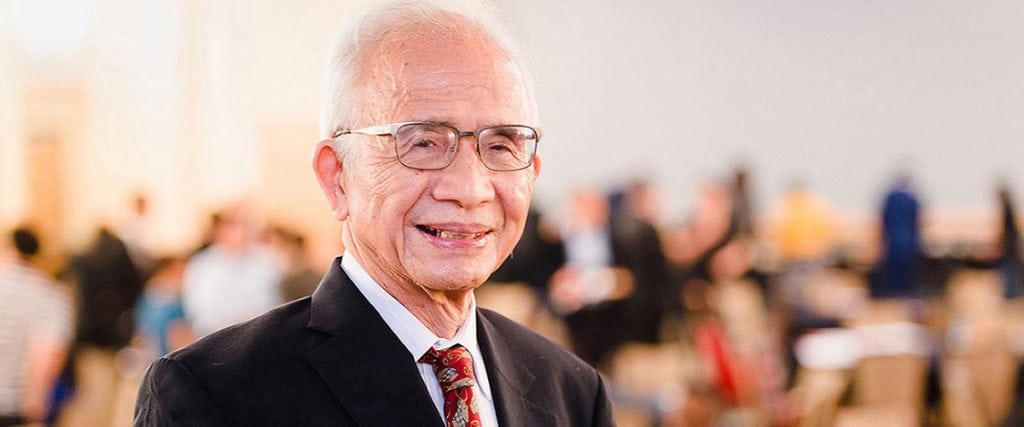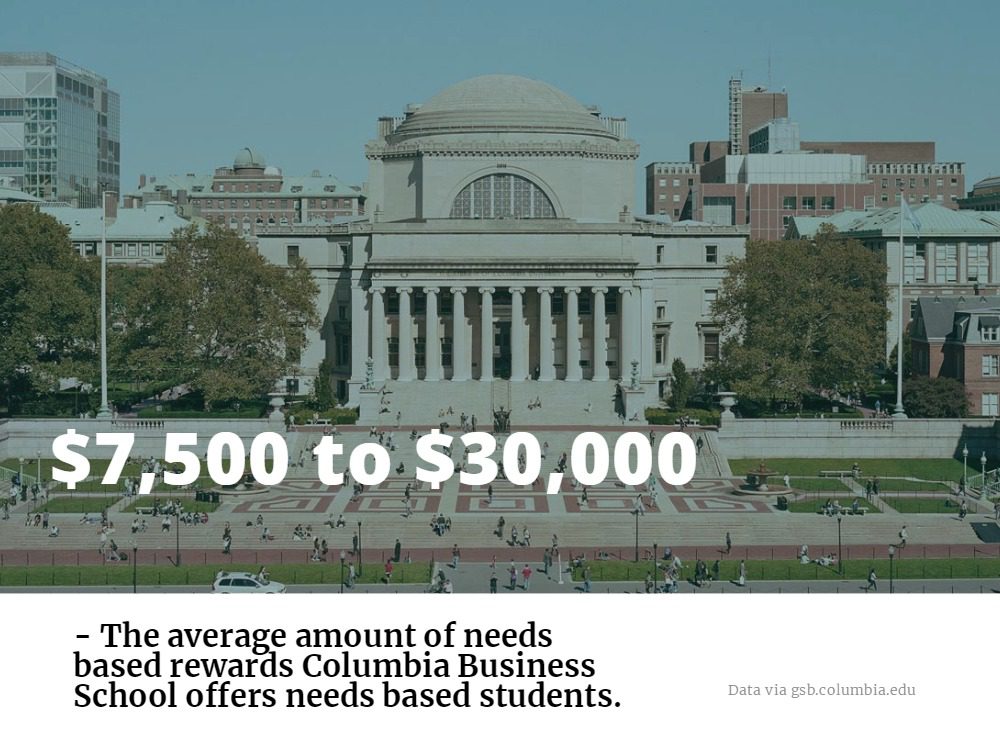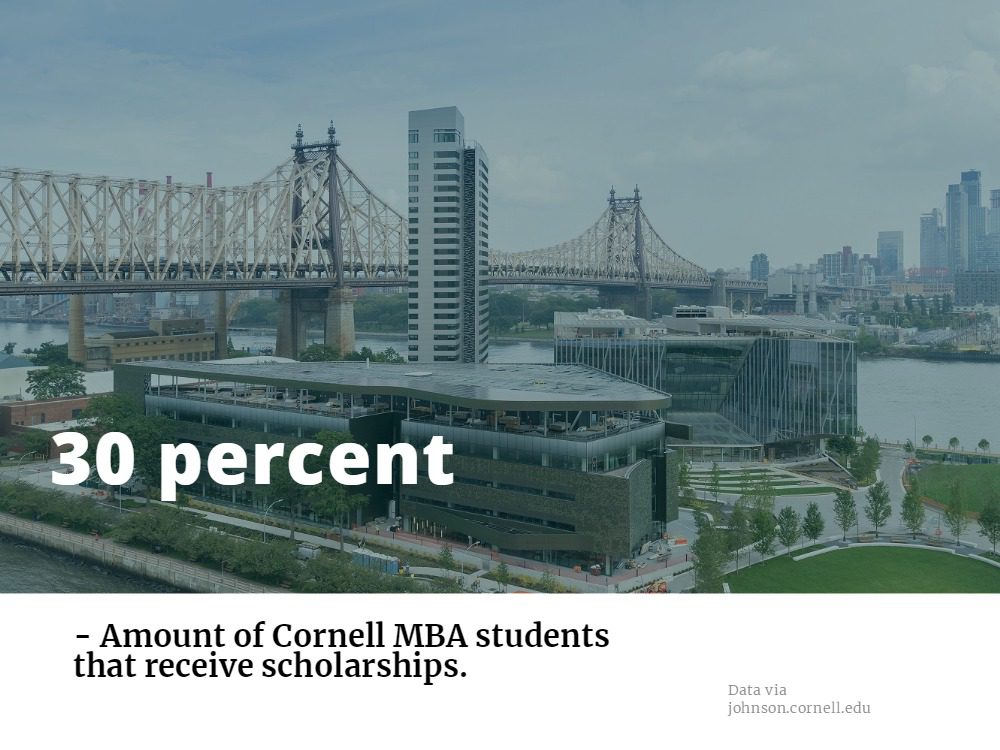A Stevens’ Therapy Startup for Trauma Victims, and More – New York City News

Let’s explore some of the most interesting stories that have emerged from New York business schools this week.
Mobile Treatment Tools Can Change Way People Recover from Trauma – Stevens Institute of Technology SOB News
The Stevens Institute of Technology School of Business recently profiled Mira Therapeutics, a new homegrown startup that uses tech to “help patients manage their symptoms, and give therapists powerful new treatment tools.”
Co-founded by Stevens students CJ Internicola, Seth Kirschner, Gregory Mercado, Nicholas Gattuso, and Annika Roll, the startup’s interactive Mira mobile app “guides patients through crises like flashbacks, anxiety attacks, and dissociation using clinically-established grounding techniques.
Specially designed for veterans, sexual assault survivors, police officers, medical providers, and many other people living with trauma, Mira also records progress by “automatically tracking symptoms and suggesting daily journal prompts.”
Internicola writes, “There are thousands of mobile apps on the market that improve mental health. We are creating technology that addresses problems unique to people living with PTSD. Mira is positioned to become a holistic improvement in the way people recover and grow from trauma.”
“We want to create technology that improves everyday life, translates into better therapy sessions, and ultimately, ameliorates suffering.”
You can find out more about the therapy startup here.
Democratizing Finance and the Unexpected Future of Fintech – Gabelli Connect
PayPal CEO Dan Schulman recently visited the Gabelli School of Business to share his insights about fintech at an event co-sponsored by the Gabelli Center for Global Security Analysis titled “Democratizing Finance: Expanding Access Through Fintech.”
Schulman told the audience, “We have a mission, which is democratizing financial services. It’s very inclusive [and it’s] about all citizens having access to the digital economy…probably the most important value for us is inclusion and diversity. Because if we have a mission that includes all citizens, we need to represent that as a company.”
Center for Financial Services Innovation president and CEO Jennifer Tescher used the event as an opportunity to talk about diversity in fintech—or lack thereof.
“I would say that, why don’t we have more women anywhere? I think it’s a particular challenge in the world of engineering, which cuts across any tech. Why don’t we have more women in financial services, forget about fintech. I think it’s a huge problem.”
You can find out more about the recent event here.
Summit Explores Future of Selling in a Digital World – Rutgers Business School News
As part of a summit that focused on “the future of selling in the digital world,” the Rutgers Business School recently hosted two panels comprised of a diverse array of sales executives:
Panel #1
- Phil Cohn, Senior Vice President of U.S. Sales for Samsung
- Jeff Clachko, Senior Vice President for NBC Sports Ad Sales
- Gary Carleton, President of Sales-Healthcare for UPS
- Tolga Akcura, Co-Founder of eBrandValue
- Joel Silverman, Executive Vice President and General Manager of Synchronoss Technologies
Panel #2
- Rita Fawcett, Vice President of Cardiovascular Sales for Bristol-Myers Squibb
- Frank Palumbo, Senior Vice of Cisco’s Global Date Center Sale
- Rahsan-Rashan Lindsay, Executive Vice President, TV One
- Jim Sterbenz, Senior Vice President of U.S. Sales at Campbell Soup
The first panel “delved into the role of analytics, metrics and customer relationship management for sales professionals” while the second panel focused on the “challenges and opportunities in sales as a result of technology.”
The keynote speaker was Cocoa Exchange President John Wycoff who extolled the virtues of the growing gig economy, which forecasts to have 7.7 million workers by 2020 due in large part to the growth of digital sales tools.
You can find out more about the recent event here.
Finance Fraud Won’t Stop, and More – New York News

Let’s explore some of the most interesting stories that have emerged from New York business schools this week.
Don’t Let Artificial Intelligence Take Your Job – Rutgers Business News
The Rutgers Business School is slated to host a symposium this week entitled “Lifelong Learning in the Digital Era,” which will host LinkedIn, edX, Google, and McKinsey experts, among others, to “offer solutions to companies and individuals on how they can refresh their knowledge and skills and not become irrelevant in the new digital economy.”
Rutgers Dean Lei Lei says, “The pace of change in technology requires both management and the workforce to keep their skills current. Otherwise, they will lose out to competitors that have increased their efficiency and stimulated product innovation,” she said.
Rutgers Assistant Professor of Professional Practice and Symposium Organizer Leon Fraser adds, “Recent college graduates as well as seasoned executives must refresh their skills regularly or risk becoming irrelevant and disposable.
You can read more about the recent symposium here.
It Pays to Cook the Books–Even When You Get Caught – Columbia Business School News
According to new research from Columbia Business School’s Shiva Rajgopal and Dan Amiram, along with researcher Serene Huang, the risk of detection for cooked books is only about 25 percent, which means that “more than half of perpetrators—most often the CEOs and CFOs of major companies—could find it beneficial to commit financial reporting misconduct.”
Rajgopal writes, “Unless regulators improve their processes, research shows that financial reporting misconduct will continue to be an attractive option.”
Their study, “Does Financial Reporting Misconduct Pay Off Even When Discovered?,” finds that “stock market losses are an effective deterrent: analysis shows that the average cost of getting caught amounts to $26.7 million, with the notable hits coming via stockholding and forgone earnings, suggesting that the stock market and the labor market are generally effective at punishing perpetrators.”
You can read the complete study here and the full article from Columbia Business School News here.
Young Professionals Earn Binghamton University MBA While Pursuing Full-Time Careers in NYC – Binghamton SOM Blog
The Binghamton University School of Management blog recently highlighted its one-year Professional MBA (PMBA), which enables students to earn MBAs while simultaneously pursuing careers via Saturdays-only classes.
“The PMBA program is designed specifically for New York City-based young professionals who are looking for a step up without temporarily stepping out of their relatively new careers.”
Trevor Smith (MBA ’17) and current district sales manager for Mazda of Boston writes, “It’s so much more than being able to look at data and know what’s going on—we learned how to deliver an effective message and story based on the data.”
“I feel much more comfortable communicating with top decision-makers than before, and it prepared me to better manage both my personal and professional life.”
Laurice LuSane (MBA ’15) and Weill Cornell Medicine Fellowship Coordinator adds, “What I was learning made me feel ready for something new. I was ready for new challenges at work. I was given more opportunities to speak out, to plan, to manage and to show I was capable.”
You can visit the program page here and check out the entire Binghamton SOM Blog entry here.
3D Printing Research, Success Without Passion, and More – New York News

Let’s explore some of the most interesting stories that have emerged from New York business schools this week.
Award-Winning Paper Explores How Designers Innovate in 3D Printing Communities – Stevens Institute of Technology SOB News
In a new paper from Gaurav Sabnis, Stevens Institute of Technology School of Business Assistant Professor of Marketing, Associate Dean of Research Dr. Jeffrey Nickerson, and the University of Navarra’s Dr. Harris Kyriakou “examines knowledge reuse in 3D printing communities [where] makers often iterate on designs created by other users to create refined products.”
According to the Stevens Institute of Technology SOB News article, “the professors looked at frequently reused designs and found a few clear signals in what helps designs get shared—from a designer’s level of experience, to the amount of information she included about her designs.”
The trio’s research is among the first to properly survey 3D printing communities and it could have only happened in the interdisciplinary incubator that is Stevens. Dr. Sabnis writes, “Stevens has a great culture that leads to more interdisciplinary research. I’m excited to do the kinds of research that creates real-world solutions for businesses in the digital age.”
You can read more about the 3D printing research from Stevens here.
Reviving Grit: Columbia Business School Study Finds That In Pursuit of Success, Dedication Falls Short Without Passion – Columbia Business School News
In a new PNAS study, Columbia Business School and Frankfurt School of Finance & Management researchers found that grit “without the clear sense of direction that passion provides does not propel people forward.”
Columbia Professor and co-author Adam Galinsky writes, “We were not surprised to find that dogged dedication to an objective – without a true passion for the goal – is mere drudgery.”
“But until now, research on grit failed to factor in the propulsive force that animated grit’s perseverance. By properly incorporating passion into the grit equation, we now have evidence that people who are passionate for their goal and persevere towards it will reach higher heights.”
You can find Why Grit Requires Perseverance and Passion to Positively Predict Performance here, and discover more fro the Columbia Business School News article here.
Where Professors Share Knowledge on Issues in Finance, Economics and Accounting – Rutgers Business School News
The Livingston Student Center recently hosted the annual Conference on Pacific Basin Finance, Economics, Accounting, and Management, which was founded by Rutgers Business School Distinguished Professor of Finance and Economics Cheng-Few Lee at the business school in 1992.

Rutgers Business School Distinguished Professor of Finance and Economics Cheng-Few Lee / Photo via business.rutgers.edu
The conference assembles “finance professors from around the world” to absorb “research on a variety of issues, from financial applications of parallel processing to the ethics of cryptocurrency.”
According to the Rutgers Business School News article, “Many of the conference speakers were Professor Lee’s former colleagues or students, including professor Yong Shi, who is one of 13 advisors to China’s premier, [and] delivered a keynote address on big Data Mining and Knowledge Management.”
You can read more about the event here.
From New York To London, and More – New York News

Let’s explore some of the most interesting stories that have emerged from New York business schools this week.
In Ambitious Capstone Project, Stevens Senior Looks Under the Hood of Securitized Auto Loans – Stevens Institute of Technology School of Business News
The Stevens Institute of Technology School of Business recently profiled Austin McDonnell, a 2018 graduate whose Senior Design capstone project examined the “the quality of the individual assets comprising securitized auto loans” in order to “figure out what individual loans look like, what their default rate is, and how likely those deals are to experience losses.”
McDonnell’s next stop is Imperial College London’s Master’s Program in Finance, where he believes the Stevens coursework really set him up to succeed. “The amount of work, and the breadth of the coursework, in the Quantitative Finance program prepares you to find that starting point on huge projects that seem impossible.”

McDonnell (’18), outside the Stevens Hanlon Financial Systems Lab / Photo via stevens.edu
“I’ve always been interested in engineering, mathematics and physics, so I was just looking at the more technical schools,” he said in an interview with his alma mater. “I saw Stevens was a lot more challenging and had more to offer than the other schools I looked at, in terms of pursuing the kind of career I wanted.”
You can read the entire interview with McDonnell here.
CUEED Celebrates Its First Decade with Big Plans for the Future – Rutgers Business School Blog
Rutgers’ Center for Urban Entrepreneurship and Economic Development commemorated 10 years of nurturing entrepreneurs in an event outside the Black Swan Espresso Shop on Newark’s Halsey Street that was “part celebration, party block party, and part reunion.”
The Center’s Executive Director Lyneir Richardson reflected on the CUEED’s past, present, and future in a rousing speech.
“Our first decade was impactful,” Richardson said. “We worked with 400 entrepreneurs. In the next decade, our goal is to get to 1,000 entrepreneurs. We want to generate more impactful research and expand our programs to outside partners who will license our curriculum. The idea is not only to create a stream of revenue for CUEED but to create more impact and get more visibility for the center.”
CUEED plans to assemble its Business Hub for Creatives Program in Memphis, while “Jacksonville and Richmond have telephoned to find out how they can also replicate CUEED’s programs.”
You can read more about the Rutgers Business School CUEED and the event here.
Now Accepting Alumni and Student Entries for 4th Annual Orange Tank Business Pitch Competition – Whitman School of Business
Syracuse’s Whitman School of Business announced its 4th Annual Orange Tank pitch competition, which is set to take place during the Orange Central 2018 celebration this coming October.
The Orange Tank competition invites “current Whitman students and alumni entrepreneurs [to] submit their business venture for consideration.” Teams will present their business ideas to a panel of judges to the tune of $5,000, $2,000, and $1,000 prizes.
Alumni business applications will be accepted through Friday, August 31 while Student entrepreneurs may submit their application through Friday, September 14.
Orange Tank takes place on October 19th at 1-3 p.m. in Whitman’s Flaum Grand Hall.
Make your reservations via Orange Central and read the full article here.
How NYC Business Schools Help the Underprivileged Applicants

Pursuing an MBA is a shrewd move for anyone looking to earn a competitive salary right out of school. Though attending a renowned school can up the price tag of earning an MBA, it may also increase the overall return on investment. According to an article in U.S. News & World Report, “… graduates of top-tier business schools usually earn higher starting salaries than their peers who went to lower-ranked schools.”
It’s not jut the opportunity to have a lucrative job right out of school that makes a high starting salary appealing. An enviable starting salary could mean more earning potential down the line. However, a top-tier school may seem out of reach for low-income applicants. After all, how can you enjoy the return on investment if you can’t afford to invest in the first place?
Luckily, many prestigious business schools offer resources for students from different socioeconomic backgrounds. Below, we’ve outlined the resources available for low-income applicants at five of New York City metro’s best business schools.
How NYC Business Schools Help the Underprivileged
Columbia Business School
Columbia Business School offers need-based awards to many students, which may result in anywhere from $7,500 to $30,000 in tuition support. Nearly half of applicants receive need-based scholarships, which are automatically renewed at the start of the second year. Columbia students can also apply for private and federal loans. To create incentive for students to choose careers in public and nonprofit fields, the school offers a Loan Assistance Program for students who utilize their education to pursue these paths. Students are eligible to apply for this program for up to five years after graduation. Depending on the extent of students’ debt, they may receive anywhere from $2,000 to $10,000 of annual support. Columbia students may also receive merit-based scholarships, such as the Columbia Fellows Program, which may cover full or partial tuition and is granted to applicants with an outstanding track record in leadership and creativity.

Stern School of Business—New York University
NYU’s Stern School of Business offers a variety of scholarships for high-achieving applicants. According to the school’s website, nearly a quarter of students who enter the full-time MBA program receive a merit-based scholarship. There are also additional merit-based opportunities for students coming from different backgrounds and perspectives. Scholarships like the Advancing Women in Business Scholarship and the Forte Fellowship are particularly geared toward female-identifying students, to support women in business. The ROMBA Fellowship aims to help LGBTQ students succeed in business education. The Consortium Fellowship exists to increase the number of minorities such as Hispanic Americans, Native Americans, and African Americans in business school as well.
Gabelli School of Business—Fordham University
At the Fordham University Gabelli School of Business, graduate students may be eligible for federal financial aid, merit scholarships, or a variety of graduate assistantships. Awards based on academic excellence range from $10,000 to full tuition. Exceptional students may be eligible for awards like the Dean’s Premier Scholarship, which includes a $20,000 living stipend, and may include a stipend toward one of Fordham’s global programs. Students can also apply for a plethora of need/merit-based scholarships, like the Hitachi Diversity and Inclusion Scholarship, which seeks to help underrepresented minorities finance their education.
Rutgers Business School, Newark and New Brunswick
The Financial Times ranked Rutgers Business School among the top 50 MBA programs for return on investment in 2017, citing a 130 percent increase in salary for students within three years of completing their degree. Moreover, the school’s website states that, “More than 80 percent of Rutgers students receive some form of financial aid.” Moreover, at $31,011 per year (not including fees), this program is far more affordable than many other prestigious schools. Students can apply for federal or private loans, grants, and an array of scholarships. In addition to the awards offered by the Rutgers Business School Graduate Scholarship Fund, the Rutgers website lists 30 fellowships, scholarships, and partnerships. The Ralph Bunche Fellowships, for example, provide tuition remission, and a $15,000 living stipend to minority students from disadvantaged socioeconomic backgrounds.
SC Johnson Graduate School of Management—Cornell University
Around 30 percent of entering the SC Johnson Graduate School of Management students receive some level of scholarship support. Scholarships like the National Society of Hispanic MBA’s (NSHMBA) and the TOIGO Fellowship specifically seek to help underrepresented minorities. The MD MBA Dual Degree Program and Lee Family Scholarship supports students on the rigorous path to receive their MD/MBA. Additionally, Cornell’s Park Leadership Fellows Program awards full tuition to up to 25 MBA applicants annually. The award is granted based on personal and professional achievements, academic performance, social contributions, and leadership. Students can also apply for federal and private loans.

Here Are the Front Runners For Amazon’s New HQ2 Campus

Last week, 20 cities in the United States and Canada were informed by Amazon that their bid to host the tech giant’s second headquarters, HQ2, was still being considered. Continue reading…
